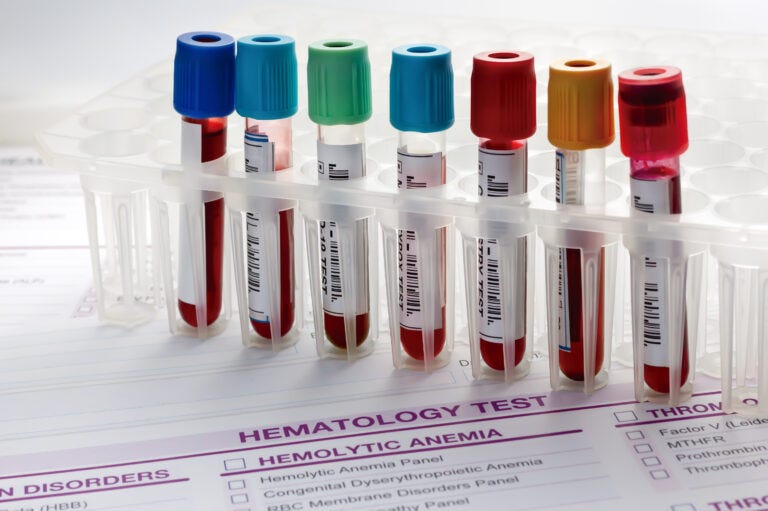Keeping tabs on your health is a vital aspect of leading a fulfilling life. One of the most effective ways to do this is through regular blood tests. These tests can provide valuable insights into your overall well-being and help detect any underlying health issues before they become serious problems. In this guide, we’ll explore ten essential
blood tests that every adult should consider taking annually for optimum health.
1. Complete Blood Count (CBC)
A CBC test evaluates your overall health and detects a variety of disorders such as anemia, infection, and leukemia. It measures several components of your blood, including red blood cells, white blood cells, and platelets. By assessing these parameters, healthcare professionals can identify potential health concerns and recommend appropriate treatments.
2. Lipid Profile
A lipid profile measures your cholesterol levels, including high-density lipoprotein (HDL), low-density lipoprotein (LDL), and triglycerides. Monitoring your lipid levels is crucial for assessing your risk of heart disease and stroke. High levels of LDL cholesterol and triglycerides can increase your risk, while higher levels of HDL cholesterol are beneficial for heart health.
3. Blood Glucose
A blood glucose test measures your blood sugar levels and is essential for monitoring diabetes and assessing your risk of developing the condition. Consistently high blood sugar levels can indicate diabetes or prediabetes, both of which require medical intervention to manage effectively. Early detection through regular blood glucose testing can help prevent complications associated with diabetes.
4. Liver Function Tests
Liver function tests evaluate the health of your liver by measuring various enzymes, proteins, and substances in your blood. These tests can detect liver damage, inflammation, or disease caused by conditions such as hepatitis, cirrhosis, or fatty liver disease. Monitoring liver function is crucial for maintaining overall health and preventing serious complications.
5. Kidney Function Tests
Kidney function tests assess the efficiency of your kidneys in filtering waste products from your blood. These tests measure creatinine and blood urea nitrogen (BUN) levels to evaluate kidney function. Detecting kidney dysfunction early can help prevent the progression of kidney disease and the need for dialysis or transplantation in the future.
Read more
here
6. Thyroid Function Tests
Thyroid function tests measure the levels of thyroid hormones in your blood, including thyroxine (T4) and triiodothyronine (T3), as well as thyroid-stimulating hormone (TSH). These tests assess thyroid function and detect conditions such as hypothyroidism and hyperthyroidism, which can affect metabolism, energy levels, and overall health.
7. Vitamin D Levels
Vitamin D plays a crucial role in bone health, immune function, and overall well-being. A deficiency in vitamin D can lead to various health problems, including osteoporosis, weak immune system, and mood disorders. Testing your vitamin D levels annually can help ensure that you maintain adequate levels of this essential nutrient for optimal health.
8. Vitamin B12 Levels
Vitamin B12 is essential for nerve function, red blood cell production, and DNA synthesis. Deficiency in vitamin B12 can lead to anemia, neurological problems, and fatigue. Regular testing of vitamin B12 levels is important, especially for vegetarians, vegans, and older adults, who are at higher risk of deficiency.
9. Iron Levels
Iron is crucial for the production of hemoglobin, which carries oxygen in your blood. Low iron levels can lead to anemia and fatigue, while high iron levels can indicate conditions such as hemochromatosis or iron poisoning. Monitoring your iron levels annually can help maintain optimal health and prevent complications associated with iron imbalance.
10. Prostate-Specific Antigen (PSA) Test (For Men)
The PSA test measures the level of PSA in a man’s blood, which can indicate the presence of prostate cancer or other prostate-related problems. While controversial due to its limitations, the PSA test can still provide valuable information when used in conjunction with other diagnostic tests and clinical evaluation.
Contact Thornhill Clinic Luton for Private Blood Tests
For accurate and reliable
private blood tests in Luton, look no further than Thornhill Clinic. With state-of-the-art facilities and experienced healthcare professionals, Thornhill Clinic offers a wide range of blood tests to meet your health needs. Whether you require routine screening or specialized testing, Thornhill Clinic provides personalized care and efficient service to ensure your well-being.
Author Description:
Rabia is a passionate advocate for preventive healthcare and believes in the importance of regular health screenings for maintaining overall well-being. With a background in healthcare management, Rabia is dedicated to educating individuals about the significance of proactive health management and guiding them toward accessible and reliable healthcare resources. Through informative articles and research-backed insights, Rabia aims to empower readers to take control of their health and make informed decisions for a healthier future.


You must be logged in to post a comment Login